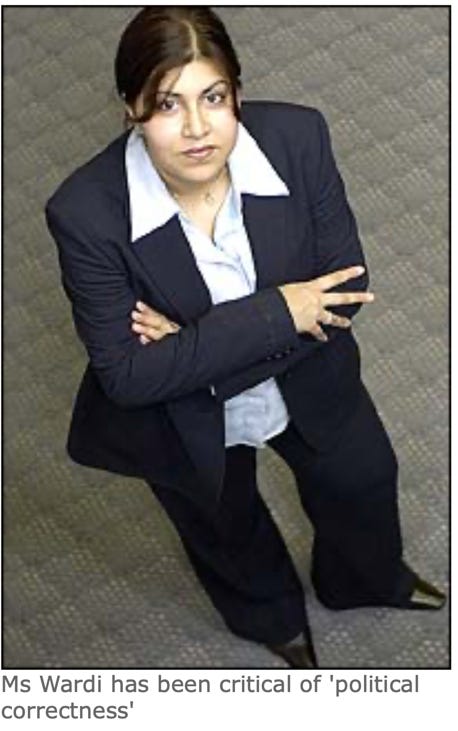Nigel Farage must make Peter Hitchens a Lord
Before the clock goes forward one last time
The death of Peter Hitchens looms over my future as it does my own parents. Having hardly known my grandparents, I expect it will be my first real experience of grief and sorrow.
Although he would be loathe to read it, this man’s corpus of work had a profound impact on my formative years (for the better) and so I perceive him as a father figure. The sons of frustrated fathers spend most of their lives attempting to realise their dreams. So it was for V.S Naipaul and Richard Nixon.
So it is for me. It is often postulated by lazy people that Hitchens has spent his life in the shadow of his brother, the late Christopher (I personally wince when interviewers ask about him, what a strange thing to do). This misses a more interesting dynamic to Peter Hitchens, being that he didn’t actually want to be a journalist at all. His first forlorn hope was to be an officer in the Navy like his father. The second, all the more historically mournful for its failure, was his desire to become a sitting member of Parliament.
In 1999, Peter Hitchens contested the Conservative Party nomination in Kensington and Chelsea against the ‘moderniser’ Michael Portillo. Although he has referred to this episode as a joke, Hitchens in reality seriously wanted to be an MP. This was revealed most dramatically in a 2009 debate which he took part in with Iain Dale. After delivering his prophecy about the failures of Cameroonism, Iain Dale - who has attempted to become a Tory MP some four times at last count - blasts him with the usual excrement about journalists sitting on the sidelines, asking why he doesn’t stand for election if he’s so bloody bright, to which Peter responds, his biblical timbre animated by severe spite:
‘No responsibility? Give some, I’d be happy to have some. No ideas? Two substantial books which you are welcome to leave and buy. As for getting elected, do people seriously imagine the process of being elected is matter of putting yourself as an individual before the public - election in this country is a matter of selection by small groups of people who filter candidates to make sure they are ciphers, obedient, you do not get past stage one of any selection in any party if you are at all troublesome, and even if you do, you are then under the control of the whips, and you are immediately suppressed. The idea that you could, if you had ideas like mine make any progress is any political party, is ludicrous to anyone who knows anything about the process.’
Hitchens is a man with too much intellectual and moral fiber to be contented with a life of simply writing. Only a narcissist could content themselves with being a mere holder of opinions. It is perhaps not the greatest tragedy of the 20th century that Peter Hitchens was never able to become a sitting Member of Parliament. But when we consider the sewage that the Tory modernisers spewed into both chambers we know that it was an injustice.

Hitchens should not be made to suffer the indignity of standing for Reform, particularly as I suspect that such a candidate would fare poorly in his particular corner of North Oxford. He should be elevated to the Lords within the first hundred days of a Reform government, right after the emergency legislation passes to force the Sun newspaper to bring back nude ladies on page three, and just before an bill of Attainder is used to imprison Tony Blair and his hangers-on.
Farage should not only consider this course of action as a favour to me; although I note that Reform has wisely followed my advice to abandon their 2024 manifesto commitments on tax and spend. Nor should it be considered merely a feeble gong. It is very curious that Reform has had little say about Education policy since the rise in the polls began. Farage is a long-standing supporter of Grammar school education and has said before that he wants one in every single town in the country. The 2024 Reform manifesto disgracefully failed to include such an expansive commitment, instead crowing about the need to maintain tax loopholes for private schools - those absurd corpse relics of inherited privilege which would have perished if not for the destruction of selective education.
‘Free schools’ are the one shibboleth that the Tories will never abandon. They consider those education reforms to be their only glory in government, and will never accept a full-throated embrace of selective education. Whatever the benefits of academies, and there is evidence to suggest they had success - this restructuring of the education system was always an elite preoccupation - the populist appeal of the coalition reform agenda was more important at the time (removing exclusion appeal panels, a patriotic rote-learning based curriculum etc). Voters instinctively grasp grammar schools. If Kemi Badenoch is forced to adopt a position to the left of Theresa May (who, whatever her many other flaws, did come tragically close to reviving grammar schools) to defend academies from Vladimir Putin it will simply serve as another reminder that the party is not reformable.



